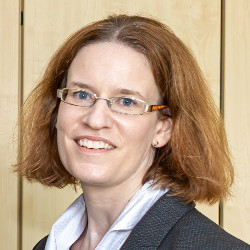Early-Career Researchers Advancing 21st Century Science
Select a Section
Animal-Free Workshop Series for Early Career Researchers
The Physicians Committee for Responsible Medicine and Johns Hopkins University Center for Alternatives to Animal Testing (CAAT) host a workshop series focused on animal-free new approach methods (NAMs) in research and testing. These free online workshops feature nonanimal research and career development presentations by experts from across industry, academia, government, and policy.
Upcoming Workshop:
Workshop No. 2, Antibodies and Beyond: The Power of Animal-Free, Recombinant Antibodies
Date: April 9, 2025
Time: 10 AM ET/4 PM CET via zoom
Workshop Summary
One of the most underestimated aspects of the 3R principles is the use of common laboratory reagents, such as antibodies, which cause the death of 1 million animals in the EU every year. Today's life sciences would be unrecognizable without the millions of available research antibody products. There are > 3.5 million antibody-based products on the market, > 99% of which are animal-derived (polyclonal, monoclonal, recombinant), while < 1% are animal-free antibodies. However, methods of development and production vary widely in their impact on animal welfare.
This workshop gives an introduction to antibodies and explains the most common terms used in relation to antibodies. What does mono- or polyclonal mean? How are these antibodies developed and how do animals play a role? How can animal-free antibodies be developed and what are their advantages and disadvantages?
Here, the phage display method is explained as one of the main methods used to develop animal-free antibodies. Application examples show the versatility of animal-free antibodies in their applicability. In addition, a small sensitization of which products and reagents in the daily laboratory routine may contain materials of animal origin will be presented.
About the Speaker
Dr. Wenzel is an expert in animal-free technologies, Co-Founder, and COO of the biotech company Abcalis GmbH. Since the early 2000s, she has gained extensive experience with diagnostic tests and 3D cell cultures and spheroids to replace animal tissue. She has developed animal-free antibodies against diptheria toxin by phage display that are currently under FDA review, perfected high-throughput methods for the functional testing of antibodies, and coinvented Multiclonal Antibodies, an animal-free replacement for polyclonal antibodies. She has received national and international recognition for her work, including the 1st ECEAE prize for Animal-free Antibodies, the Lower Saxony Innovation Award, and the start-up award of the city of Braunschweig.
Workshop No. 3, Brain MPS, Organoid Intelligence, and Careers in Animal-Free Science
Date: July 1, 2025
Time: 10 AM ET/4 PM CET via zoom
Workshop Summary
Workshop No. will feature both a scientific presentation and a career panel. To begin the event, Dr. Itzy Morales Pantoja will present recent advances in brain microphysiological systems that are reshaping how we model neurological function and disease. The second part of the workshop will be a career panel featuring representatives from academia, industry, government, and policy. Panelists will share their career journeys and discuss their current work. Attendees will have time to ask questions of our panelists to learn more about the different career paths using animal-free research.
Research Presentation Overview
Dr. Morales Pantoja will present research led at the Center for Alternatives to Animal Testing (CAAT) focused on innovating neurological science through 3D brain models. Highlights include strategies to increase glial cell populations, introduce brain-resident immune cells, and improve disease modeling. She will also discuss efforts to interface brain organoids with AI for developmental neurotoxicity studies, and the use of custom 3D-printed microfluidic systems designed to support the growth of larger, more complex organoids. Together, these innovations enhance the physiological relevance of human in vitro models and advance the development of functional systems for Organoid Intelligence (OI).
About the Speaker
Itzy E. Morales Pantoja, PhD, is a stem cell neuroscientist at Johns Hopkins University with over a decade of experience in cell biology, neurodegeneration, and bioengineering. Her research centers on developing physiologically relevant human in vitro models to study neurodegenerative diseases and evaluate neuroprotective therapies. She earned her PhD in Cellular and Molecular Medicine from the Johns Hopkins University School of Medicine.
ERA21 Journal Club
The ERA21 Journal Club meets at conferences and provides a forum for early-career scientists, undergraduate, master’s, and PhD students to meet and discuss relevant research articles on human-relevant biomedical research, toxicology, and policy.
Upcoming Meetings:
Next meeting to be scheduled soon.
Technology Trainings and Showcases
Upcoming Events:
More events coming soon.
Past Events
Hesperos Technology for Toxicology Research: From Development to Approval
On March 16, 2025, the Physicians Committee for Responsible Medicine, the Johns Hopkins Center for Alternatives to Animal Testing, and Hesperos are partnered to host a free, hands-on workshop to showcase Hesperos technology and applications. A limited number of participants toured the facility and built three different human-on-a-chip models, heard from scientists working with the models, and sat down with leaders in the field, Drs. J Hickman and Thomas Hartung to discuss advancing human-specific non-animal approaches.
A Biotechnology Showcase in Human-specific Nonanimal Research and Testing
On February 14, 2025 a workshop at the American Association for the Advancement of Science Annual Meeting showcased cutting-edge, human-specific models, like organ-chip technologies, that offer more precise, translatable, effective, and ethical means of investigation. Participants learned about various human-focused approaches through live demonstrations, expert talks, and collaborative discussions, exploring the potential and practical applications of these advanced models. Featured presentations included: Emulate, InSphero, MIMETAS, MatTek, and the Wyss Institute at Harvard University.
Workshop No. 1, Understanding Translatability and Crafting Competitive Grant Applications
Workshop No. 1 featured Dr. Jarrod Bailey, Director of Medical Research at the Physicians Committee for Responsible Medicine, discussing how human-focused research provides greater clinical benefits, due to greater biological similarity and specificity of human-based methods and Dr. Angela Hvitved, Program Director at the Alternatives Research & Development Foundation, providing an overview of funding opportunities for nonanimal research methods and practical tips for crafting a strong proposal that is tailored to the target funding opportunity.







